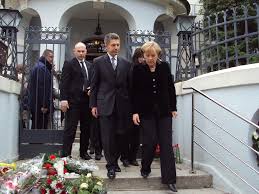The Legacy of Angela Merkel: Transformative Leadership in the 21st Century

Introduction
Angela Merkel, the first female Chancellor of Germany, served from 2005 to 2021, marking a remarkable era in global politics. Her leadership not only reshaped Germany but also had significant implications for Europe and the world. Merkel’s pragmatic approach to governance, coupled with her scientific background, allowed her to tackle complex issues ranging from the Eurozone crisis to climate change, making her one of the most influential leaders of her time.
Merkel’s Rise to Power
Born in Hamburg in 1954, Merkel grew up in East Germany and earned a doctorate in quantum chemistry. She entered politics after the fall of the Berlin Wall and quickly established herself as a key figure in the Christian Democratic Union (CDU). By 2005, she became Chancellor, leading a coalition government and gradually gaining a reputation for her steady, consensus-driven style of governance.
Key Achievements and Challenges
One of Merkel’s most notable achievements was her handling of the Eurozone crisis. Germany’s strong economy allowed Merkel to champion austerity measures among struggling European nations while maintaining stability within the Euro. Furthermore, her decision to accept over a million refugees during the 2015 crisis showcased her commitment to humanitarian values, although it also sparked political backlash within Germany.
Merkel also played a crucial role in addressing climate change, positioning Germany as a leader in renewable energy initiatives through her Energiewende policy, which aimed to transition the country to a sustainable energy system.
Post-Chancellorship and Ongoing Influence
After stepping down in late 2021, Merkel’s influence continues in various ways. She remains a respected figure in international relations and often voices her perspectives on global issues. Her leadership style, characterized by caution and pragmatism, is studied by current and aspiring politicians worldwide.
Conclusion
Angela Merkel’s legacy is multifaceted, marked by her ability to navigate crises and unite differing factions within and beyond Germany. As the European Union faces new challenges in a post-COVID-19 world, Merkel’s perspectives and decisions during her tenure provide valuable lessons. Her impact on international politics will continue to resonate, positioning her as a key figure in the ongoing discourse surrounding governance, leadership, and global cooperation.









